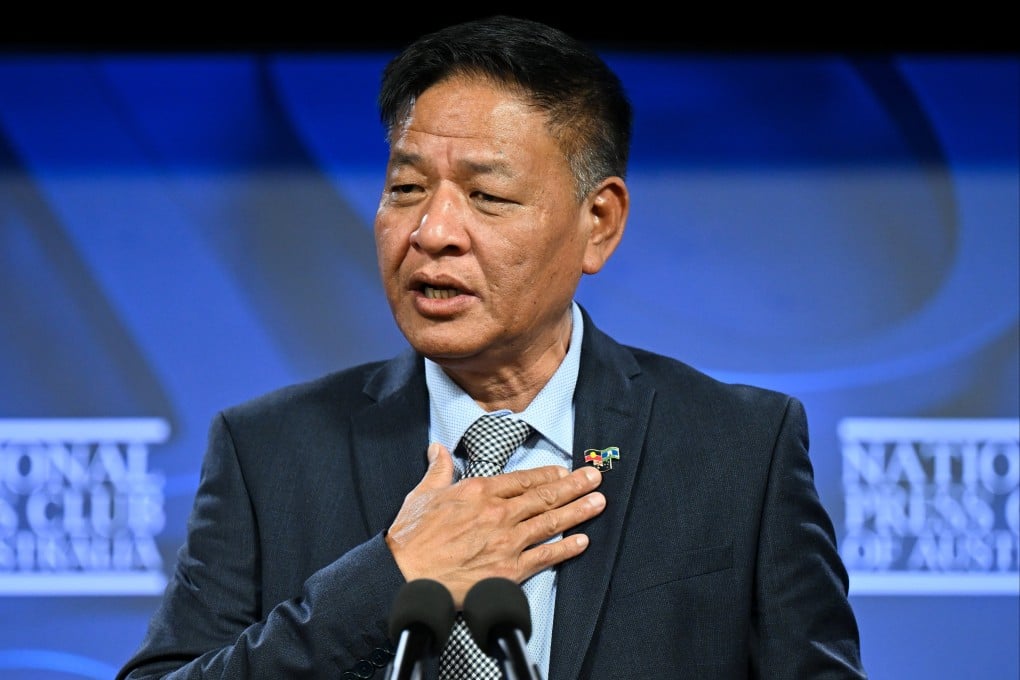Advertisement
Downturn in mainland China could prompt an attack on Taiwan or India, exiled Tibetan leader warns
- ‘My analysis is if there is a threat to the survival of the Communist Party then they will definitely attack one of these places’, Penpa Tsering said
- The Tibetan political leader-in-exile was speaking at an event in Australia. China’s embassy in Canberra had called for his speech to be cancelled
Reading Time:1 minute
Why you can trust SCMP
28

The head of an India-based organisation known as Tibet’s government-in-exile said in Australia on Wednesday that a destabilising economic downturn in mainland China could prompt Beijing to attack Taiwan or India, and this dynamic should be closely watched.
Advertisement
Penpa Tsering, known as the Sikyong of the Central Tibetan Administration (CTA), was speaking at the National Press Club in Canberra, and compared Chinese policies to move Tibetan children into boarding schools, and DNA collection, to Australia’s past disgraced policy of removing indigenous children from families.
Australia’s parliament later apologised for the policy and what became known as the “Stolen Generation”.

The Sikyong is a leadership role created in 2012 after the Dalai Lama, the Tibetans’ 87-year-old spiritual leader, relinquished political authority in favour of an organisation that could outlive him.
Tsering said Beijing kept flashpoints burning with India, Taiwan and in the South China Sea, but its priority was the economy, which was in a downturn with rising youth unemployment.
“China is very insecure today so we have to keep watching the dynamism and see, because right now my analysis is if there is a threat to the survival of the Communist Party then they will definitely attack one of these places,” he said in response to reporters questions.
China’s embassy in Canberra, which had urged the press club to cancel the speech, did not immediately respond to a request for comment.
Advertisement

Advertisement